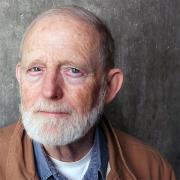Urban Forests Planning for Future Climate Change Scenarios
Speaker Information
Professor Emeritus of the Departments of Landscape Architecture & Environmental Planning and Environmental Science, Policy and Management, UC Berkeley. During his 44 year career at the University of California he taught courses in ecological analysis, forest ecology, urban forestry, and California Landscapes. He currently teaches Urban Ecology and hydrology at the University of Navarra in Pamplona, Spain. His research has focused on various aspects of urban forestry as well as studies of forest succession. The urban forest research includes studies of the effects of trees on air pollution in urban areas, transition of wildland forest to urban forests, the influence of biome characteristics on urban forests around the world, the reconstruction of urban forest destroyed by warfare, and the impact of climate change on street trees in California. McBride received a B.S. in forestry from the University of Montana and M.S. (Forestry) and Ph.D. (Botany) degrees from the University of California, Berkeley.

The Intergovernmental Panel on Climate Change (IPCC) released a report in 2021 on the consequences of five different climate change scenarios. These scenarios were based on the amount of carbon dioxide that has and will be released into the atmospheric between 2015 and 2100. Although three of these scenarios project a decrease in the release of carbon dioxide, all 5 scenarios will result in an increase in world temperature. The likelihood of the different scenarios taking place is examined in this presentation. The increase in temperature, regardless of the scenario, will result in a change in urban climates and related phenomena. Some cities will become hotter and drier, while others will experiencing higher temperatures and higher precipitation. More frequent droughts will impact some cities and the treat of wildfires will increase for many of cities in the west. Hurricanes of increased ferocity will impact coastal areas. These changes will limit the species that can survive in some cities, while expanding the number of species that can be used in other cities. New directions in urban forest management and planning are required to meet these challenges. This seminar addresses climate change and suggest strategies for the future of urban forests.
